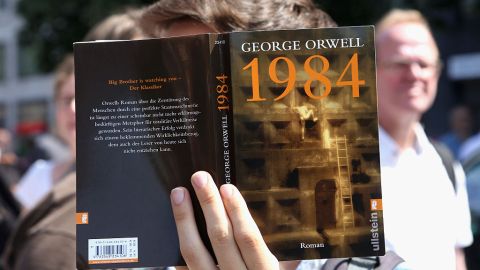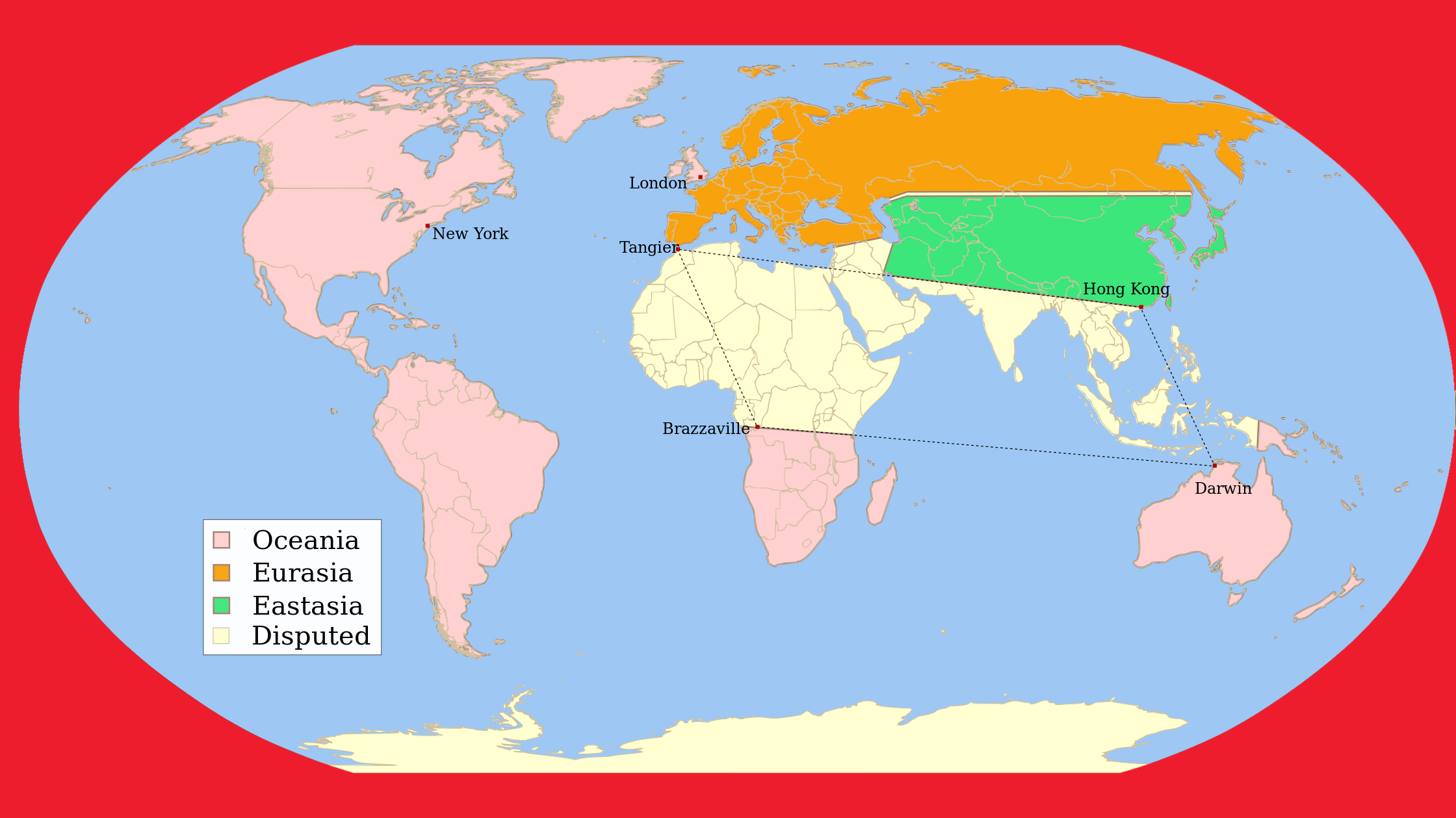Why Forgotten Details of George Orwell’s “1984” Are Now Coming to Light

Interest in George Orwell’s 1984 has awaked in recent days — shooting to #1 on Amazon’s bestseller list and selling out its Signet Classics edition — helping the book find a new audience that has little, if any, memory of actual fascism.
Today we associate Orwell’s dystopian vision with government Internet surveillance and CCTV cameras. It is a testament to the relative peace that has reigned since the end of WWII that Orwell’s vision of a deeper totalitarianism has been lost.
Now at stake, or so it would seem, is the notion of truth itself — a truth that corresponds to what our eyes and ears tell us. Yet the spin game of politics has always distorted here and there, so is our present moment really that different?
People are noticing a difference.
Kellyanne Conway’s recent appearance on NBC’s Meet the Press, where she used the dystopian-sounding phrase “alternative facts” in defending press secretary Sean Spicer’s remarks on inaugural numbers, sounded eerily similar to 1984‘s newspeak and doublethink. Conway is the former campaign manager for President Trump, and currently as counselor to the president.
1984’s sales have gone up 9500% since the inauguration of President Donald J. Trump. Our societal slide from truthiness to post-truth to alternative facts may have triggered our deep-seated Orwellian fears.
For a lot of listeners, the prospect of “alternative facts” is like saying 2+2=5 (alternative math).
The use of the phrase “alternative facts” has become such a lightning rod moment because it directly challenges our clear delineation between facts and falsehoods. As host Chuck Todd sharply pointed out to Conway, “Alternative facts are not facts. They’re falsehoods.”
In other words, you can present your numbers and I can present mine.
To allow for an alternative fact is similar to Orwell’s doublespeak, which is “the acceptance of two contractionary ideas or beliefs at the same time.” It is typically construed as the act of being aware of the truth while telling carefully constructed falsehoods.
“The party told you to reject the evidence of your eyes and ears. It was their final, most essential command.” –George Orwell, 1984 pic.twitter.com/ePfu3m720g
— Terry Moran (@TerryMoran) January 22, 2017
This is deeply worrisome for those of us with a deep respect for empirical data. When our eyes can clearly see that the inaugurations of President Obama were much larger than the recent inauguration for President Trump, but we are being told that both our eyes and the numbers from experts are wrong. It is strikingly similar to the pervasive rewriting of the past in Orwell's 1984.
It is the politicization of facts; in 1984, the Ministry of Truth would rewrite books and articles to suit their needs. The word "science" is non-existent in the novel. In light of the recent changes concerning the Environmental Protection Agency and the removal of climate change from the White House website on Trump's first day (since changed), there is a concern that we have entered an age of managed perceptions as opposed to truths.
For George Orwell, the propaganda techniques employed by Nazi Germany was influential on crafting a dystopian post-truth future. Six years before publishing 1984, he wrote in an essay that:
Nazi theory indeed specifically denies that such a thing as "the truth" exists. ... The implied objective of this line of thought is a nightmare world in which the Leader, or some ruling clique, controls not only the future but the past. If the Leader says of such and such an event, "It never happened" – well, it never happened. If he says that two and two are five – well, two and two are five. This prospect frightens me much more than bombs. -George Orwell
In Orwell's 1984, citizens forgot about the past and then forgot about the forgetting process. Independent thought became non-existent, as it became reliant on the government's version of events.
2017 seems to be the time to re-read 1984. It is also a time to remember that 2+2=4.
--





